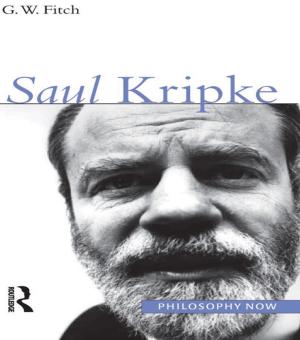Psychotherapy After Kohut
A Textbook of Self Psychology
Nonfiction, Health & Well Being, Psychology, History, Psychoanalysis, Mental Health| Author: | Ronald R. Lee, J. Colby Martin | ISBN: | 9781134884452 |
| Publisher: | Taylor and Francis | Publication: | May 13, 2013 |
| Imprint: | Routledge | Language: | English |
| Author: | Ronald R. Lee, J. Colby Martin |
| ISBN: | 9781134884452 |
| Publisher: | Taylor and Francis |
| Publication: | May 13, 2013 |
| Imprint: | Routledge |
| Language: | English |
Hailed as "a superb textbook aimed at introducing psychoanalytic self psychology to students of psychotherapy" (Robert D. Stolorow), Psychotherapy After Kohut is unique in its grasp of the theoretical, clinical, and historical grounds of the emergence of this new psychotherapy paradigm. Lee and Martin acknowledge self psychology's roots in Freud's pioneering clinical discoveries and go on to document its specific indebtedness to the work of Sandor Ferenczi and British object relations theory. Proceeding to readable, scholarly expositions of the principal concepts introduced by Heinz Kohut, the founder of self psychology, they skillfully explore the further blossoming of the paradigm in the decade following Kohut's death. In tracing the trajectory of self psychology after Kohut, Lee and Martin pay special attention to the impact of contemporary infancy research, intersubjectivity theory, and recent empirical and clinical findings about affect development and the meaning and treatment of trauma.
Hailed as "a superb textbook aimed at introducing psychoanalytic self psychology to students of psychotherapy" (Robert D. Stolorow), Psychotherapy After Kohut is unique in its grasp of the theoretical, clinical, and historical grounds of the emergence of this new psychotherapy paradigm. Lee and Martin acknowledge self psychology's roots in Freud's pioneering clinical discoveries and go on to document its specific indebtedness to the work of Sandor Ferenczi and British object relations theory. Proceeding to readable, scholarly expositions of the principal concepts introduced by Heinz Kohut, the founder of self psychology, they skillfully explore the further blossoming of the paradigm in the decade following Kohut's death. In tracing the trajectory of self psychology after Kohut, Lee and Martin pay special attention to the impact of contemporary infancy research, intersubjectivity theory, and recent empirical and clinical findings about affect development and the meaning and treatment of trauma.















